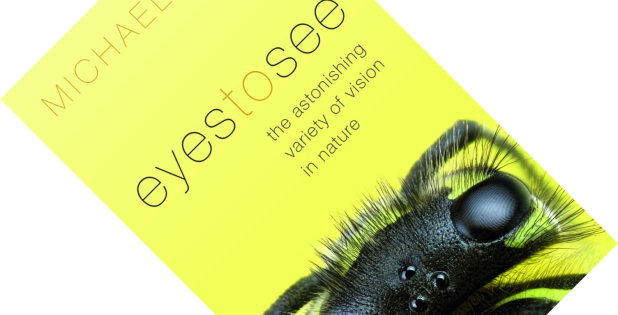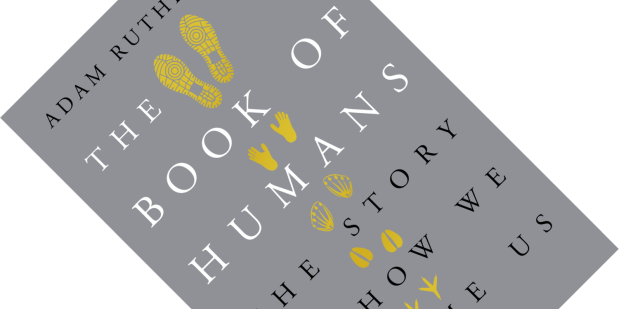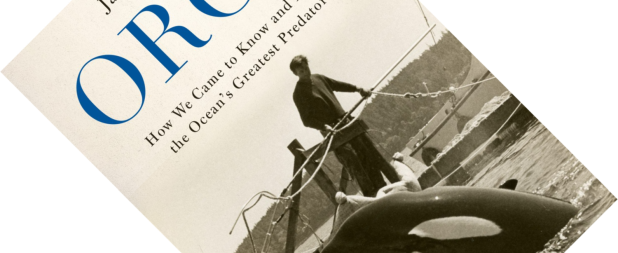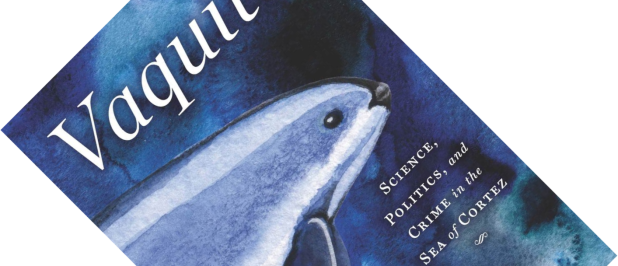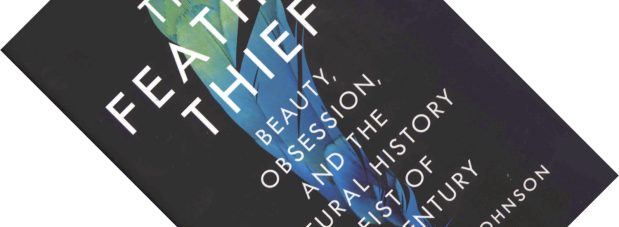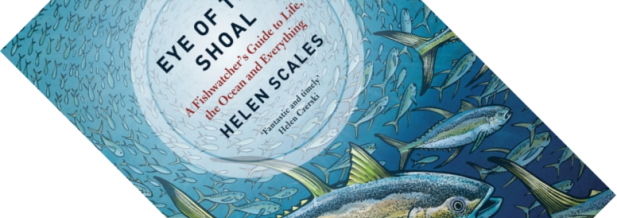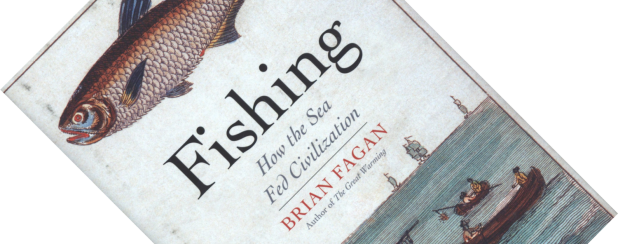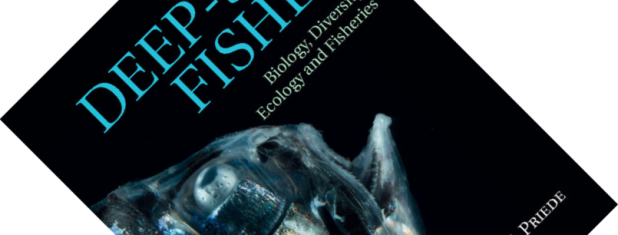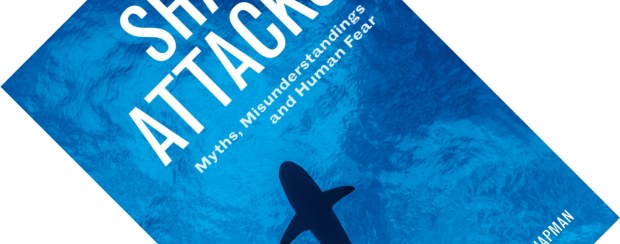I spy, I spy with my little eye… humans are visually oriented creatures and eyes are fascinating organs. Michael Land, an emeritus (i.e. retired) professor in neurobiology at the University of Sussex, is a world expert on eyes, having studied vision for over 50 years. Next to hundreds of papers, he co-authored the textbook Animal Eyes, which was published in a second edition in 2012, and the short primer The Eye: A Very Short Introduction. Eyes to See is his opportunity to reflect on a long career and simultaneously showcase the astonishing variety of vision, as the book’s subtitle would have it.
ichthyology
Book review – The Book of Humans: The Story of How We Became Us
Historically, humans have long considered themselves special compared to the natural world around them. It shows, for example, in old depictions where humans are at or near the top of a chain of lifeforms, with only angels and gods above us. Darwin caused a tremendous ruckus by saying we were descended from primates, and evolutionary biology has since had a long history of diminishing our anthropocentric worldview. With The Book of Humans, self-professed science geek Adam Rutherford has written an entertaining exploration of human evolution, showing that, amidst the teeming multitudes of lifeforms surrounding us, we are really not that special. And yet we are.
Book review – Orca: How We Came to Know and Love the Ocean’s Greatest Predator
Orcas or killer whales have been at the centre of a swirling controversy for decades. Popular attractions in aquaria, their plight there has been highlighted in recent books and documentaries, further strengthening opposition to keeping cetaceans (i.e. whales, dolphins, and porpoises) in captivity. However, as Jason M. Colby meticulously documents in this book, there is a cruel irony at play here: this very practice of captivity is what raised our environmental awareness in the first place.
Book review – Vaquita: Science, Politics, and Crime in the Sea of Cortez
If I asked you to name the most endangered cetacean species, I doubt the vaquita would come to mind. You might mention the baiji, the dolphin living in China’s Yangtze river, but alas, no living members of this species have been seen for years, despite intense search efforts, and the species is presumed extinct. Unfortunately, the vaquita seems to be next in line. Biologist Brooke Bessesen here tells its sad story, revealing the complex world of species conservation.
Book review – The Feather Thief: Beauty, Obsession, and the Natural History Heist of the Century
The tropical birds-of-Paradise have fascinated generations of naturalists, from Charles Darwin and Alfred Russel Wallace (who risked life and limb to collect many specimens for museum holdings) to David Attenborough, who, together with Erroll Fuller, wrote Drawn From Paradise: The Discovery, Art and Natural History of the Birds of Paradise. They were at the centre of a Victorian fashion craze for bird feathers, which decimated many colourful bird families, but they were also at the heart of a far more obscure Victorian pastime: salmon fly-tying. A resurgence in interest led a young man to break into the ornithology collection of the Natural History Museum at Tring, stuff a suitcase with 299 specimens of various rare colourful bird species, and walk out again to sell their feathers.
Wait, what?
Welcome to the story of the natural history heist of the century.
Book review – Eye of the Shoal: A Fish-Watcher’s Guide to Life, the Ocean and Everything
Helen Scales is a marine biologist, diver, and surfer, and is no stranger to writing good books. I have previously read Poseidon’s Steed: The Story of Seahorses, from Myth to Reality from her hand. The book after that, Spirals in Time: The Secret Life and Curious Afterlife of Seashells, received critical praise in the press and was shortlisted for the Royal Society of Biology book prize. Here, Scales turns her attention to fish. Is this another page-turner waiting to be recognised?
Book review – Fishing: How the Sea Fed Civilization
Brian Fagan is a celebrated archaeologist and author who has written many books on the topic of environmental history. Several of these sit on my shelves, though I admit this is the first book by his hand that I have read. With Fishing, Fagan presents a deep history of fishing from the time of our human ancestors up to the present day, highlighting its overlooked role in the history of human civilization. His story spans the globe and pieces together a fragmented and complicated puzzle.
Book review – Deep-Sea Fishes: Biology, Diversity, Ecology and Fisheries
It has become cliché to say that we know more about the surface of Mars than we do about the depths of our oceans, inaccessible as they are to us landlubbers. Nevertheless, technological advances have allowed us to discover more and more about the denizens of the deep. Anyone who has watched Blue Planet II or similar recent documentaries can testify to the bizarre and wonderful life forms that can be found there.
Book review – Shark Attacks: Myths, Misunderstandings and Human Fear
If there is one group of animals that Steven Spielberg has not done a favour, it must be sharks. Already feared as a dangerous predator in an environment where humans are not in their element the 1975 movie Jaws drove this fear to stratospheric heights and painted a portrait of these fish as ruthless man-eating monsters. Browse any selection of books on sharks, and you’re likely to see photos of a breaching great white, jaws agape. Many people are not happy with this Jaws effect (see for example Lindsay Abrams’s post on Salon or Marc Lapadula’s piece on Screenprism), and this lingering fear even affects policymakers (see Christopher Neff’s article in the Australian Journal of Political Science). Tobey Curtis provides an interesting counter note to this sentiment on The Fisheries Blog, also pointing out how – ironically – Peter Benchley, author of the book on which Spielberg based his movie, was actually an advocate for shark conservation (see his book Shark Trouble). As a side-note, shark attacks have happened for as long as human have entered the sea, though have long been poorly documented – Richard Fernicola’s Twelve Days of Terror: Inside the Shocking 1916 New Jersey Shark Attacks is a bit of an exception.
This, by way of a short introduction, brings us to the current book: Chapman’s Shark Attacks. The problem with shark attacks is that they are a bit like plane crashes: low-probability, high-impact events. You’re not likely to experience either, but when you do, the results can be disastrous. And thus we fear both flying and sharks.
Book review – All the Boats on the Ocean: How Government Subsidies Led to Global Overfishing
This book presents a historical analysis of overfishing, following up on her 2012 book All the Fish in the Sea: Maximum Sustainable Yield and the Failure of Fisheries Management. Though many reviews have been written on overfishing, and everyone agrees that too many fishing boats have been built, Finley contends that the question is never asked who built these boats in the first place. Her analysis aims to show that government policies, especially during the Cold War (1946-1990), have been responsible, with subsidies for the fishing industry being a proxy to attain other goals. As the opening sentence puts it: fishing has always been about more than just catching fish. The US-side of the story is scrutinised most intensely, though developments in other nations are covered at length.

